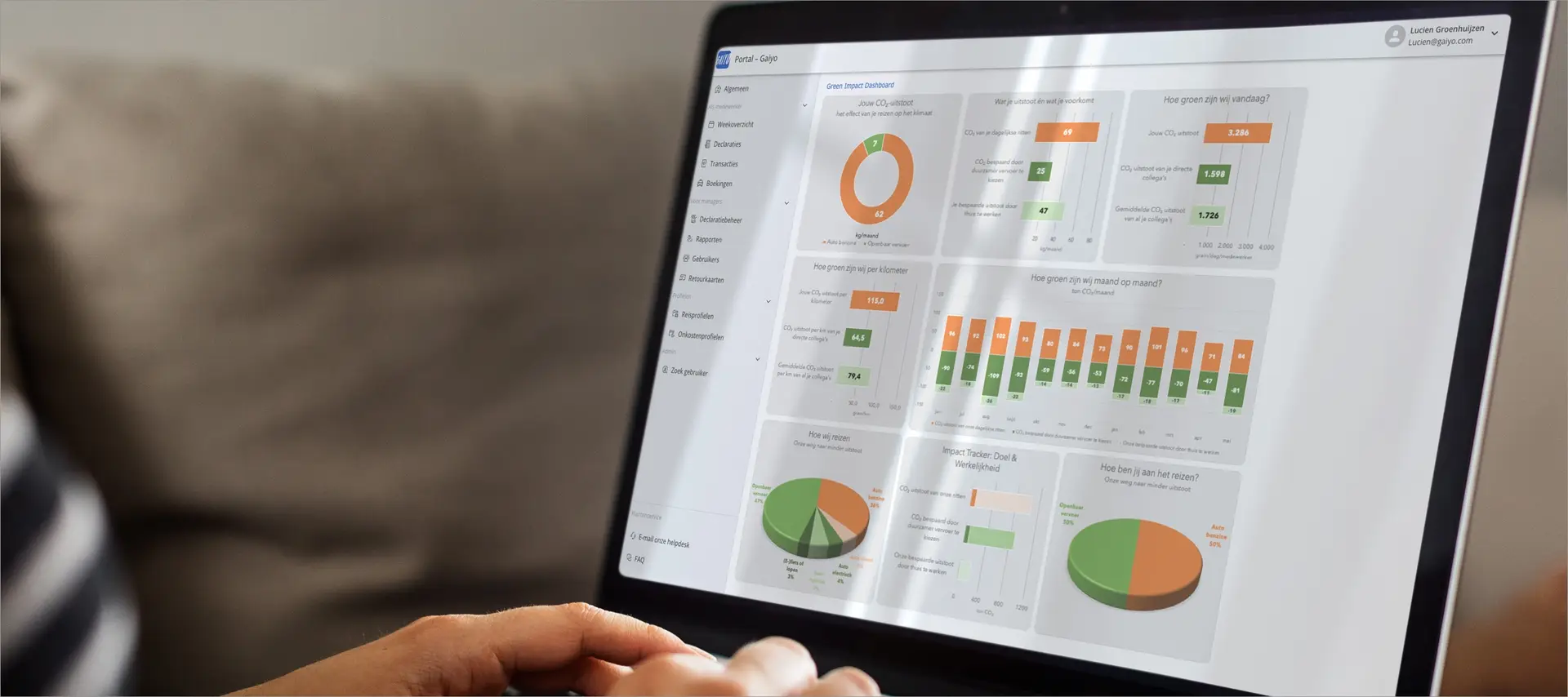1. What is the WPM (Work-Related Personal Mobility Reporting Requirement)?
Since July 1, 2024, the Dutch government requires companies with 100 or more employees to report the CO₂ emissions related to work-related mobility (WPM). This includes both commuting and business travel.
Employers must record:
- Total kilometers travelled by employees.
- A breakdown per transport mode (car, bike, public transport, walking, etc.) and fuel type (petrol, diesel, electric, hybrid, hydrogen).
The reporting for 2024 had to be submitted to the RVO (Netherlands Enterprise Agency) by June 30, 2025. You may report for the entire year or for the second half of 2024 only.
From 2025 onwards, reporting will be annual for the full previous year (reference date: January 1).
Why is this required?
The Dutch government aims to reduce CO₂ emissions from work-related travel by 1.5 megatons by 2030. If the national target is not met, from 2026 onwards individual company limits may be introduced.
2. Which companies must comply?
- Companies with 100 or more employees (each working at least 20 hours per week) on January 1 of the reporting year.
- Freelancers, contractors, and agency workers do not count towards the 100-employee threshold.
3. What data must you register?
For each employee and each trip:
- Distance (in kilometers)
- Type of trip commuting or business-related travel
- Mode of transport
- Fuel type
The RVO will automatically calculate the CO₂ emissions based on the data you provide in its online reporting portal.
4. Why compliance is an opportunity, not just an obligation
- Better insights: Identify the biggest CO₂ contributors and take targeted action.
- Sustainability & ESG benefits: Demonstrating CO₂ reduction strengthens employer branding and attracts talent.
- Efficiency: Automated data collection reduces administrative workload and errors.
- Future-proof: Early compliance reduces risk if individual emission caps are introduced later.
5. How Gaiyo supports HR and compliance teams
- User-friendly mobility app: Employees record transport mode, fuel type, and distances in real time.
- Integrated claims module: CO₂ data automatically flows into expense and travel claim processes.
- Smart dashboard: Instant insights into your company’s CO₂ footprint, aligned with RVO requirements.
- Privacy & GDPR compliance: Secure handling of employee mobility data.
- Ready for future changes: Easily adaptable to upcoming legislative updates.
6. Gaiyo’s step-by-step approach to WPM compliance
| Step | Action |
|---|---|
| 1. Assessment | Check if your company meets the 100-employee threshold. |
| 2. Preparation | Review your current mobility data collection process. |
| 3. Implementation | Deploy the Gaiyo mobility app and claims module. |
| 4. Training | Inform and train employees on correct trip registration. |
| 5. Reporting | Submit the data to RVO before June 30, 2025. |
| 6. Continuous improvement | Use data insights to shape your sustainable mobility policy. |
Want to see how your organisation can easily comply with the CO₂ registration requirement (WPM) and instantly gain insight into its Green Impact? Contact our team via gaiyo.com or email us at sales@gaiyo.com.

